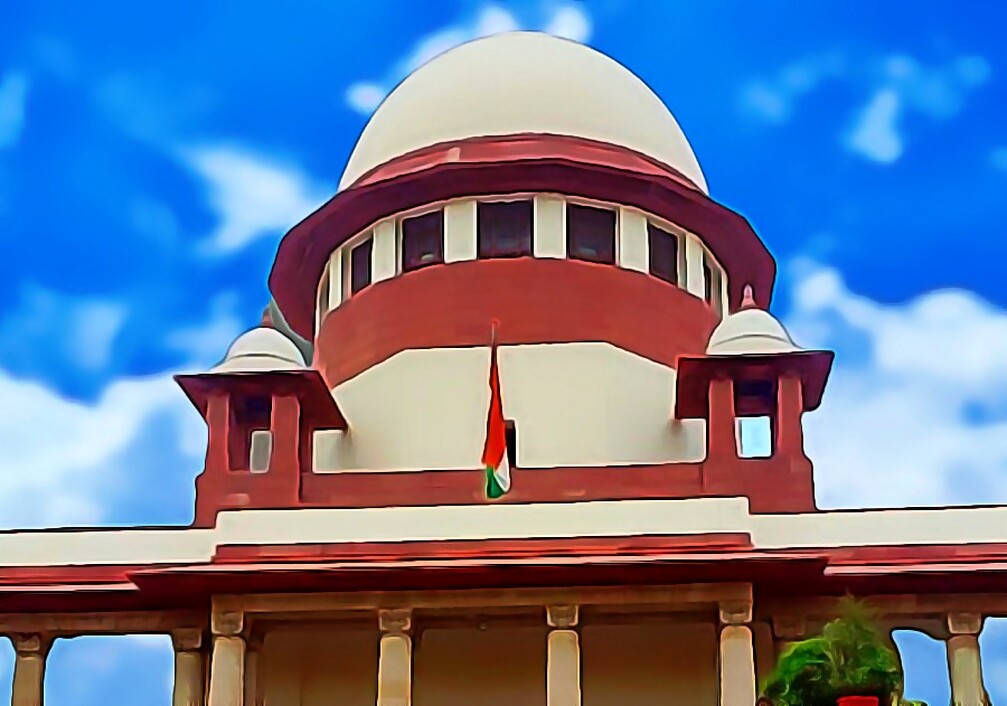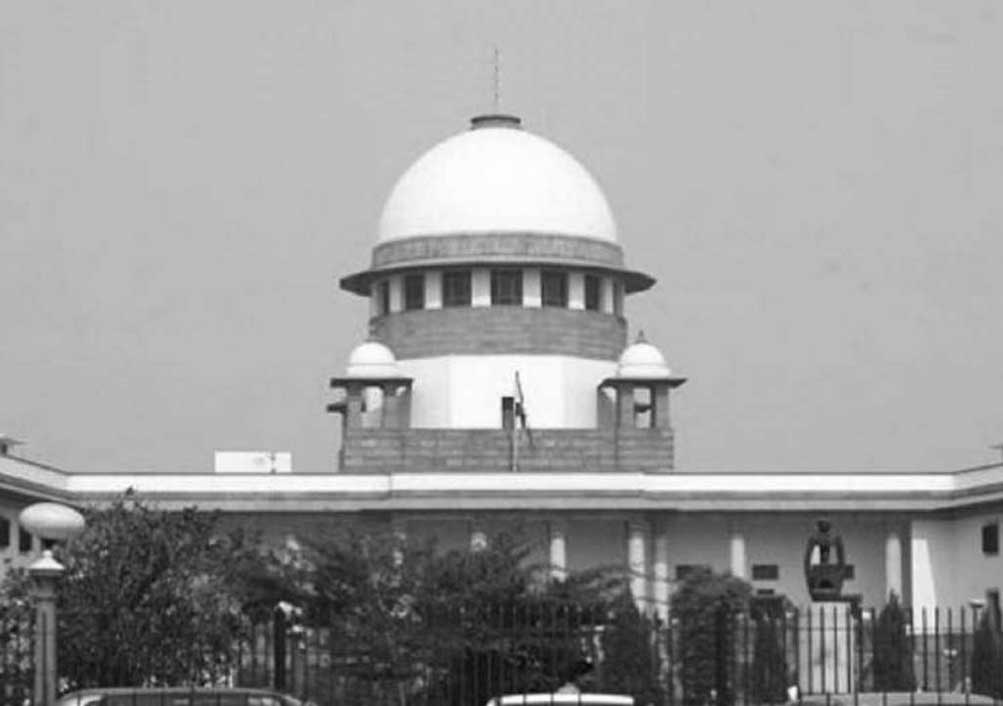Exercise discretion with greater caution, care: SC issues reminder in light of fact that HCs have been entertaining DRT & SARFAESI Act petitions in spite of availability of alternative remedy
Justices B.R.Gavai, Rajesh Bindal & Sandeep Mehta [10-04-2024]

Read Order:PHR INVENT EDUCATIONAL SOCIETY v. UCO BANK AND OTHERS [CIVIL APPEAL NO. 4845 OF 2024]
Tulip Kanth
New Delhi, April 15, 2024: In view of availability of statutory remedies under the Recovery of Debts and Bankruptcy Act, 1993 as well as SARFAESI Act,2002 the Supreme Court has allowed an auction purchaser’s appeal while imposing a cost of Rs 1 lakh on the borrower for filing a writ petition before the Telangana High Court.
The Borrower, in this case, had availed a loan from the Respondent- Bank and in order to secure the said loan, the Borrower had mortgaged four properties (scheduled properties) as collateral security. However, the Borrower defaulted in the repayment of the loan amount, which led the Respondent-Bank to initiate proceedings against the borrower under the SARFAESI Act.
Aggrieved by the Auction Sale Notice, the Borrower preferred a securitization application before DRT under Section 17 of the SARFAESI Act. Meanwhile, the auction was conducted
and the appellant- PHR Invent Educational Society (auction purchaser) emerged as the highest bidder.
On the same day, DRT passed an interim order refusing to interfere with the sale of the scheduled properties which was to be conducted on that very day. The Borrower had also filed an interlocutory application praying for stay of further proceedings qua the auction of the scheduled properties, wherein DRT directed the Respondent-Bank not to confirm the sale. The DRT further directed that, in the event that the Borrower failed to make the aforesaid deposits, the Respondent-Bank would be at liberty to confirm the sale in favor of the highest bidder.
Subsequently, the appellant deposited Rs 4,29,16,650 towards the payment of the balance auction and the Borrower proposed One Time Settlement (OTS) for all the outstanding loan accounts but the Respondent-Bank requested the Borrower to settle all the outstanding loan accounts with interest payable at the contractual rate.
Thereafter, DRT passed an order whereby the securitization application was dismissed as withdrawn at the behest of the Borrower who submitted that the matter had been settled out of court. On the other hand, the Respondent-Bank informed that no such out-of- court settlement had been reached.
The Respondent-Bank confirmed the sale of the scheduled properties and the possession of the scheduled properties was accordingly delivered to the appellant. The Borrower's application before the DRT, praying for setting aside the aforesaid order was dismissed. Aggrieved thereby, the Borrower filed writ petition before the High Court. The High Court, by the impugned order, set aside the DRT's order and restored the matter to the Tribunal. Being aggrieved thereby, the auction purchaser approached the Top Court.
At the outset, the 3-Judge Bench of Justice B.R.Gavai, Justice Rajesh Bindal and Justice Sandeep Mehta delved into the law with regard to entertaining a petition under Article 226 of the Constitution in case of availability of alternative remedy. Referring to various precedents, the Bench said, “It could thus be seen that this Court has strongly deprecated the practice of entertaining writ petitions in such matters while also adding, “It can thus be seen that it is more than a settled legal position of law that in such matters, the High Court should not entertain a petition under Article 226 of the Constitution particularly when an alternative statutory remedy is available.”
Though it was specifically contended on behalf of the appellant that the writ petition was not maintainable on account of availability of alternative remedy, the High Court had interfered with the writ petition only on the ground that the matter was pending for sometime before it and if the petition was not entertained, the Borrower would be left remediless.
“We however find that the High Court has failed to take into consideration the conduct of the Borrower. It is further to be noted that, though the High Court had been specifically informed that, on account of subsequent developments, that is confirmation of sale and registration thereof, the position had reached an irreversible stage, the High Court has failed to take into consideration those aspects of the matter”, the Bench stated.
Further observing that non-exercise of jurisdiction under Article 226 of the Constitution on the ground of availability of an alternative remedy is a rule of self- restraint, the Bench referred to Commissioner of Income Tax and Others v. Chhabil Dass Agarwal and reiterated the following exceptions when a petition under Article 226 could be entertained in spite of availability of an alternative remedy:
- where the statutory authority has not acted in accordance with the provisions of the enactment in question;
- it has acted in defiance of the fundamental principles of judicial procedure;
- it has resorted to invoke the provisions which are repealed; and
- when an order has been passed in total violation of the principles of natural justice.
“It has however been clarified that the High Court will not entertain a petition under Article 226 of the Constitution if an effective alternative remedy is available to the aggrieved person or the statute under which the action complained of has been taken itself contains a mechanism for redressal of grievance”, the Bench added.
The Top Court was of the view that the High Court had grossly erred in entertaining and allowing the petition under Article 226 of the Constitution.
Noting that the High Courts had been entertaining petitions arising out of the DRT Act and the SARFAESI Act in spite of availability of an effective alternative remedy, the Bench also reminded the High Courts of the following words pronounced in the case of United Bank of India v. Satyawati Tondon and Others:
“It is a matter of serious concern that despite repeated pronouncement of this Court, the High Courts continue to ignore the availability of statutory remedies under the DRT Act and the SARFAESI Act and exercise jurisdiction under Article 226 for passing orders which have serious adverse impact on the right of banks and other financial institutions to recover their dues. We hope and trust that in future the High Courts will exercise their discretion in such matters with greater caution, care and circumspection.”
Hence, allowing the appeal, the Bench dismissed the writ petition with costs quantified at Rs 1,00,000 imposed upon the Borrower.
Sign up for our weekly newsletter to stay up to date on our product, events featured blog, special offer and all of the exciting things that take place here at Legitquest.




Add a Comment